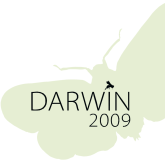 |
I prefer English text
Peter Hammerstein
biolog
Økonomi, evolusjon og beslutningsteori
- Mindre rasjonalitet og mer samarbeidsvilje?
I diskusjon med Gaute Torsvik
Onsdag 21. oktober kl 19:00
Auditorium Egget, Studentsenteret, Parkv 1, Nygårdshøyden
Engelsk sammendrag:
Economists use decision theory to explore how humans ought to behave if only they
were smart enough. Homo oeconomicus is a fictitious being, equipped with consistent
preferences and an unlimited capacity to identify and solve any problem optimally at
no cost in no time. In contrast, biologists explore how animals with their limited mental
capabilities actually behave in natural situations. It does not seem a feasible question
to ask how animals ought to behave. Yet, there is a link between normative economic theory
and its empirical biological counterpart. Darwinian evolution often creates traits that
look to an observer as if the animal did care about the economist's advice. Therefore,
economic analysis of animal behavior has become a flourishing field in which games and
markets play an important role. I examine the theoretical foundation of this field and
illustrate conceptual issues with biological examples of trade, advertising, partner
choice, and cooperation. I also discuss the impact of evolutionary biology on current
thought and empirical activities in economics.
Peter Hammerstein
er professor ved Institutt for teoretisk biologi ved Humboldt Universitetet i Berlin, Tyskland.
Forskningen hans kombinerer økonomi og biologi, natur og kultur, og atferd hos dyr og mennesker.
Gaute Torsvik
er professor ved Institutt for økonomi ved Universitetet i Bergen. I tillegg til en mengde vitenskapelige artikler om
incentiver i økonomi og politikk har han skrevet boka
Menneskenatur og Samfunnsstruktur: Ein kritisk introduksjon til økonomisk teori (2003).
Arrangementet er gratis og åpent for alle.
Foredraget holdes på engelsk og egner seg også for ikke-biologer.
Velkommen!
Forskningsforedrag:
Gift og motgift i naturen og kulturen
Peter Hammerstein
Torsdag 22. oktober 10:15
Auditorium 101, Jahnebakken 5 (Mikrobiologibygningen), Nygårdshøyden
Engelsk sammendrag:
In host parasite interactions there is usually little scope for cooperation. It would seem
maladaptive, for example, if hosts actively provided their parasites with resources,
helped them to survive and facilitated their transmission into offspring. Intracellular
bacteria of the genus Wolbachia demonstrate impressively, however, that this view
of host parasite relationships is far too simple. Many strains of Wolbachia are known
for a dual way in which they manipulate their hosts. In males they "poison" the sperm. In a
female's egg they offer an "antidote" if the egg is infected. Females of an infected
population would then often be under selection to "pay protection money" in order to "buy"
the rescue of eggs in fusions with manipulated sperm. Less figuratively speaking, our models
show for a wide range of parameters that natural selection would program females to support
the bacteria even if the latter significantly reduced female fecundity. This is probably one
of the main reasons why more than half of all insect species seem to be infected with
Wolbachia. The bacterial poison-antidote system can strongly influence host evolution
since it facilitates genetic divergence, local adaptation, and speciation. Wolbachia
are not the only organisms employing a poison-antidote system. In particular, human business
often prospers on the basis of structurally similar manipulations. The talk also addresses
the general issue of how manipulative strategies evolve and how to explain human drug
seeking behavior.
darwin.uib.no
|
|



